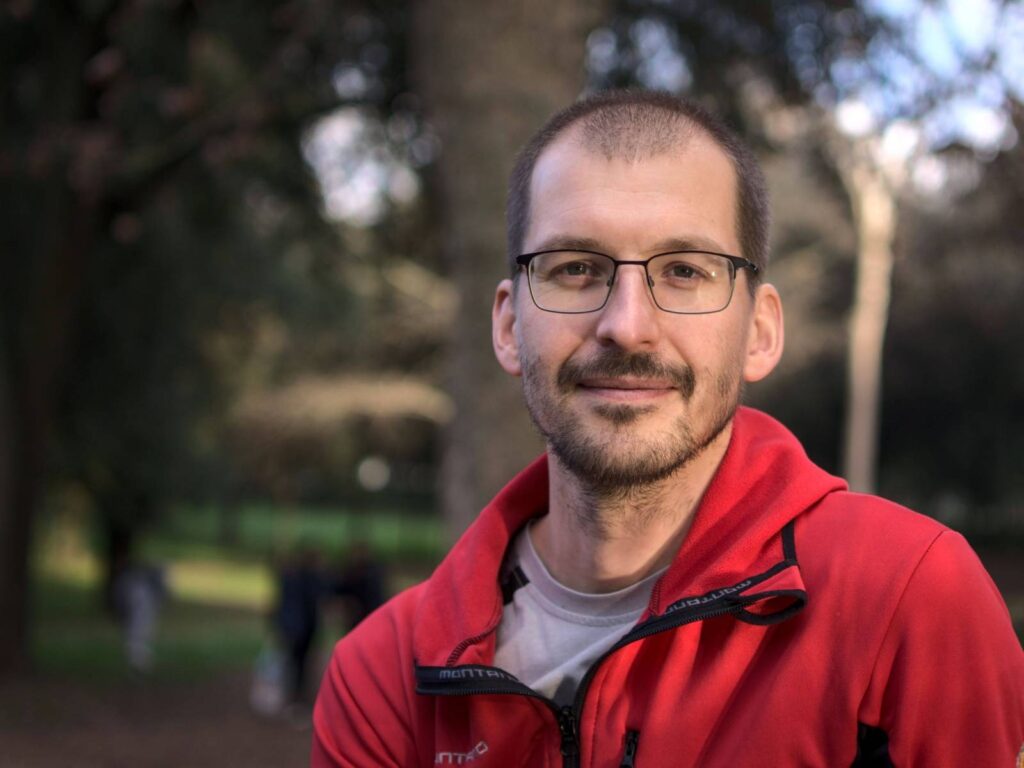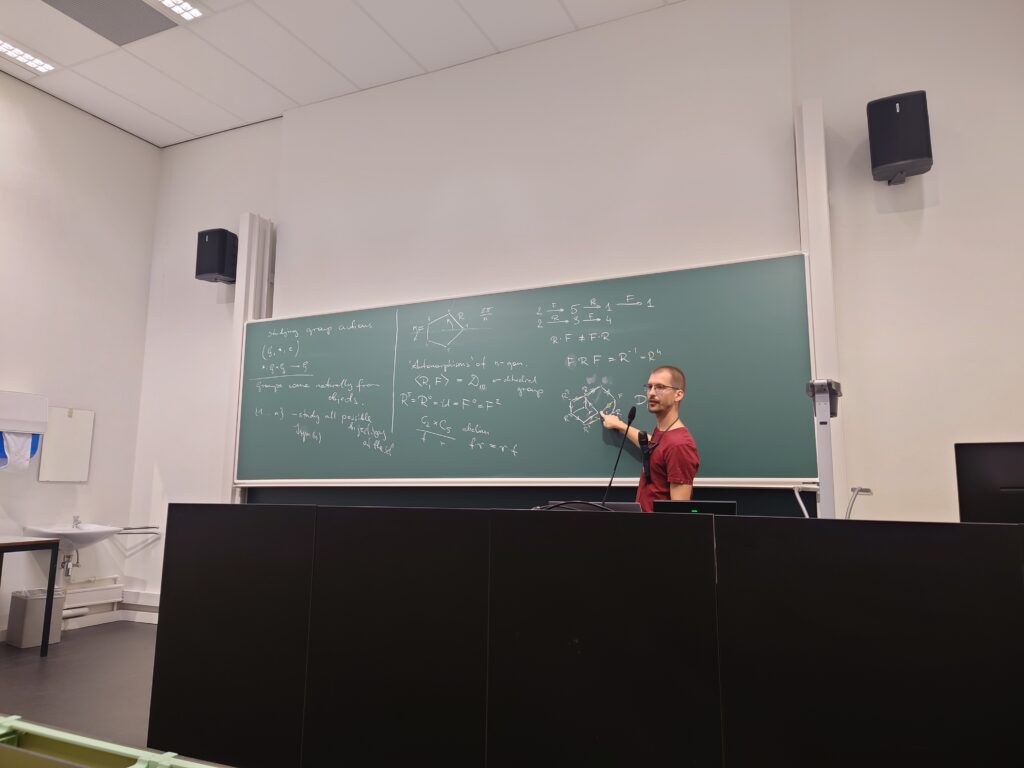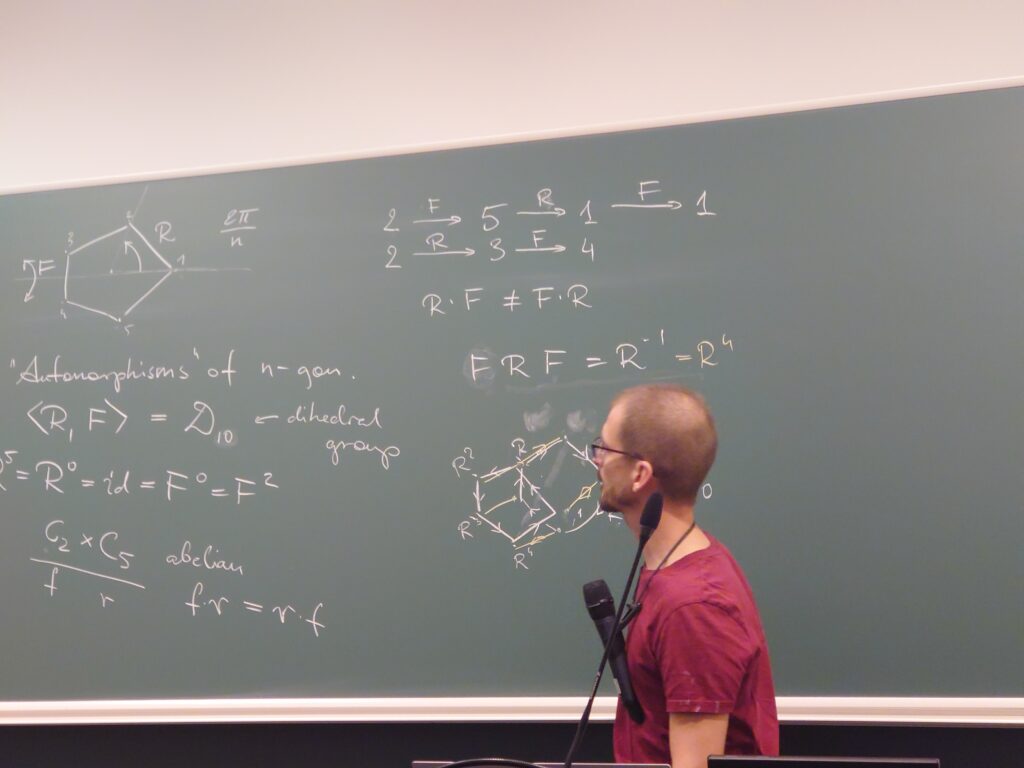Marek Kaluba
Postdoctoral Researcher at Karlsruher Institute für Technologie
Studying group actions for fun and profit
20 November 2023, 10:00-11:00
KU Leuven, Department of Electrical Engineering (ESAT)
Aula L (ELEC 00.24)
streaming link: https://eu.bbcollab.com/guest/4da117bbacb149d88189d69766c2e994
Abstract
Although a randomly chosen polynomial problem will not have any symmetries, man-made examples derived from modelling often feature extensive symmetry patterns. In this introductory talk we’ll go through basic examples of using group theory to define such patterns. Then we will see how this may lead to vast simplifications of various algebraic problems.
One particular class of problems where this theory applies very well is when a group acts on a polynomial ring k[x] and one is interested in a linear map A: k[x] → k[x] which is invariant under the action (i.e. satisfies symmetry pattern). Examples of such settings include the eigenvalue method for solving systems of polynomial equations and semi-positive definite optimization problems derived from sum of squares programming. Using classical results of the representation theory of finite groups we will show how to find the optimal basis of k[x] for exploiting the symmetry. In some cases we will be able to do so without referring to any explicit basis(!) of k[x] deferring the computations with matrices until the very last step. This is made possible by looking at the group ring of the symmetry group and performing the necessary computations there.




